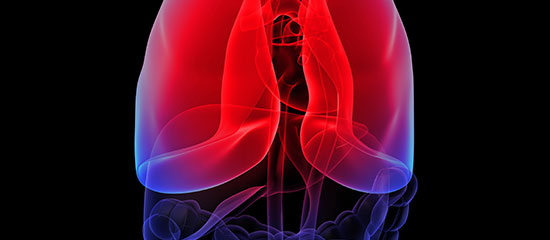cancer clinic
Cancer Immunity Clinic

01
Causes
cancer usually develops when external factors called carcinogen cause abnormal growth of lung cells. These cancerous cells form a mass called tumor by unlimited proliferating, and the tumor destroys nearby normal lung tissues as grows. Moreover, tumor cells threaten the patient's life by spreading into nearby lymph nodes and other organs.
About 85% of lung cancer cases are developed by smoking. Smoking increases the risk of lung cancer 13 times more. A long period of secondhand smoking increases the risk of lung cancer 1.5 times. When exposed to the same degree of smoking, males are 1.5 times more likely to develop lung cancer than females. Smoking is the most dangerous risk factor of the risk factors described below.
radon gas, a radioactive gas produced in the soil, asbestos which is used for insulation, fire prevention, flooring and roofing slates, break lining, etc., uranium, arsenic, vinyl chloride, nickel and chromium-VI compounds, coal products, mustard gas, methyl chloride ether, burning substances of gasoline and diesel, talc dust, etc.
02
암의 특성
- 01
Coughing, Blood in sputum
- 02
Wheezing sound while breathing
- 03
Uncomfortably short breathing
- 04
Chest pain
- 05
Symptoms of pneumonia such as bad coughing with fever and sputum
- 06
Difficulty in swallowing foods
- 07
Easily getting hoarse voice
- 08
Weigh loss Loss of appetite
- 09
Pain in shoulders Pain in inner arms near armpits
- 10
When metastasized into bones - acute pain in bones, bone breaking with no reason
03
진단
| Type of Cancer | Examination Method | Advantages of Examinination | Disadvantages of Examination |
|---|---|---|---|
| Lung cancer | Chest radiography | It is the most basic examination, which helps infer next step. | |
| Sputum smear | It is not helping a lot. | ||
| Chest CT scan | Accurate diagnosis is possible. Low-dose CT scanning is recommended. |
Must be careful for high radiation exposure dose. There may be problems to make patients undergo unnecessary tests. |
|
| Bronchoscopy | It is recommended to take this examination at a hospital where the full-time thoracic physician or surgeon is. Biopsy is possible. | The cost is high. Patients may feel pain and there may be risks. |
04
Types
| Category | Non small cell lung cancer | Small cell lung cancer |
|---|---|---|
| Statistics | 80% of lung cancer cases | the other 20% |
| Types | Squamos cell carcinoma, Adenocarcinoma, Large cell carcinoma | |
| Progressions | Divided into 4 stages Slow progression | Highly rapid progression Spreading into entire body parts in early-stage |
| Treatment | Can be fully recovered by surgery | Not operable. Can be treated using chemotherapy or radiotherapy |
05
Treatments

SurgeryWhen the tumor is resectable in the non small cell lung cancers, surgery is the most effective treatment.

ChemotherapyFor the progressed lung cancer, chemotherapy is necessary.Even after the total resection, combining chemotherapy increase cure rate.

RadiotherapyWhen it is not operable, cancer cells are destroyed by irradiating tumor lesion with enough radiation. By adjusting the level and range of radiation, recent radiotherapy can irradiate enough while minimizing damage.
06
Prevention



